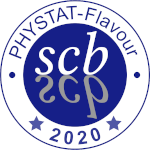Speaker
Description
Interval estimation is one of the most common types of inference practiced by experimentalists, and the flavour sector is not less interested than high-pt physics. In fact, the physics of flavour brings to the table some quite interesting problems, with complex multi-dimensional parameter spaces, non-linearities, and significant systematic effects. While much has been written on the theoretical principles of interval estimation, oftentimes the practitioner meets with issues for which practical guidance is not easy to find. Amongst typical hurdles are the correct handling of systematic uncertainties in frequentist intervals, and optimization of data selection for "best sensitivity" in the double-sided problem of discovery vs limits. I will give a discussion of those problems in the light of real-life experience from flavour physics measurements.
